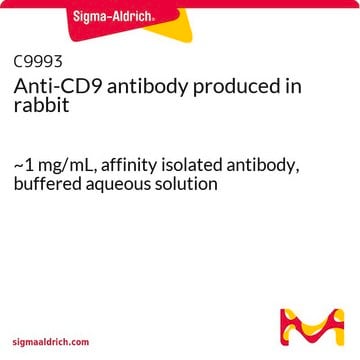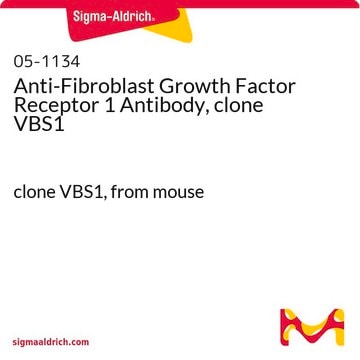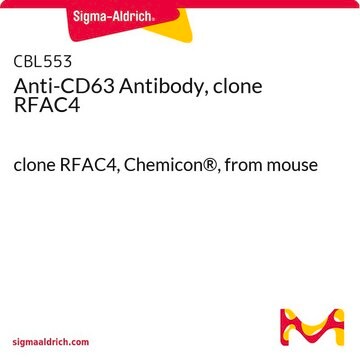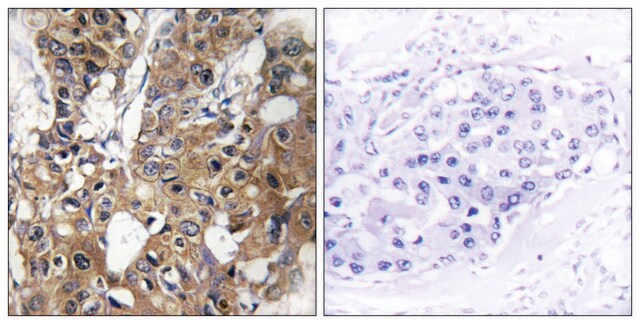SAB2702167
Monoclonal Anti-TSG101 antibody produced in mouse
Synonym(s):
TSG10, VPS23
About This Item
Recommended Products
biological source
mouse
conjugate
unconjugated
antibody form
purified immunoglobulin
antibody product type
primary antibodies
clone
4A10
monoclonal
form
liquid
mol wt
46 kDa
species reactivity
human, monkey, mouse, rat, hamster
concentration
1 mg/mL
technique(s)
ELISA: suitable
flow cytometry: suitable
immunocytochemistry: suitable
immunofluorescence: suitable
immunohistochemistry: suitable
immunoprecipitation (IP): suitable
western blot: 1:500-1:3000
isotype
IgG1
UniProt accession no.
shipped in
wet ice
storage temp.
−20°C
target post-translational modification
unmodified
Gene Information
human ... TSG101(7251)
Related Categories
General description
Immunogen
Application
Monoclonal Anti-TSG101 antibody has been used in western blotting and immunoprecipitation (IP) analyses.
Biochem/physiol Actions
TSG101-4A10 recognizes TSG101 protein, the product of a recently identified tumor susceptibility gene whose inactivation in mouse fibroblasts results in cell transformation and the ability of those cells to form tumors in nude mice.
Features and Benefits
Physical form
Disclaimer
Not finding the right product?
Try our Product Selector Tool.
recommended
Storage Class Code
10 - Combustible liquids
Flash Point(F)
Not applicable
Flash Point(C)
Not applicable
Certificates of Analysis (COA)
Search for Certificates of Analysis (COA) by entering the products Lot/Batch Number. Lot and Batch Numbers can be found on a product’s label following the words ‘Lot’ or ‘Batch’.
Already Own This Product?
Find documentation for the products that you have recently purchased in the Document Library.
Our team of scientists has experience in all areas of research including Life Science, Material Science, Chemical Synthesis, Chromatography, Analytical and many others.
Contact Technical Service








